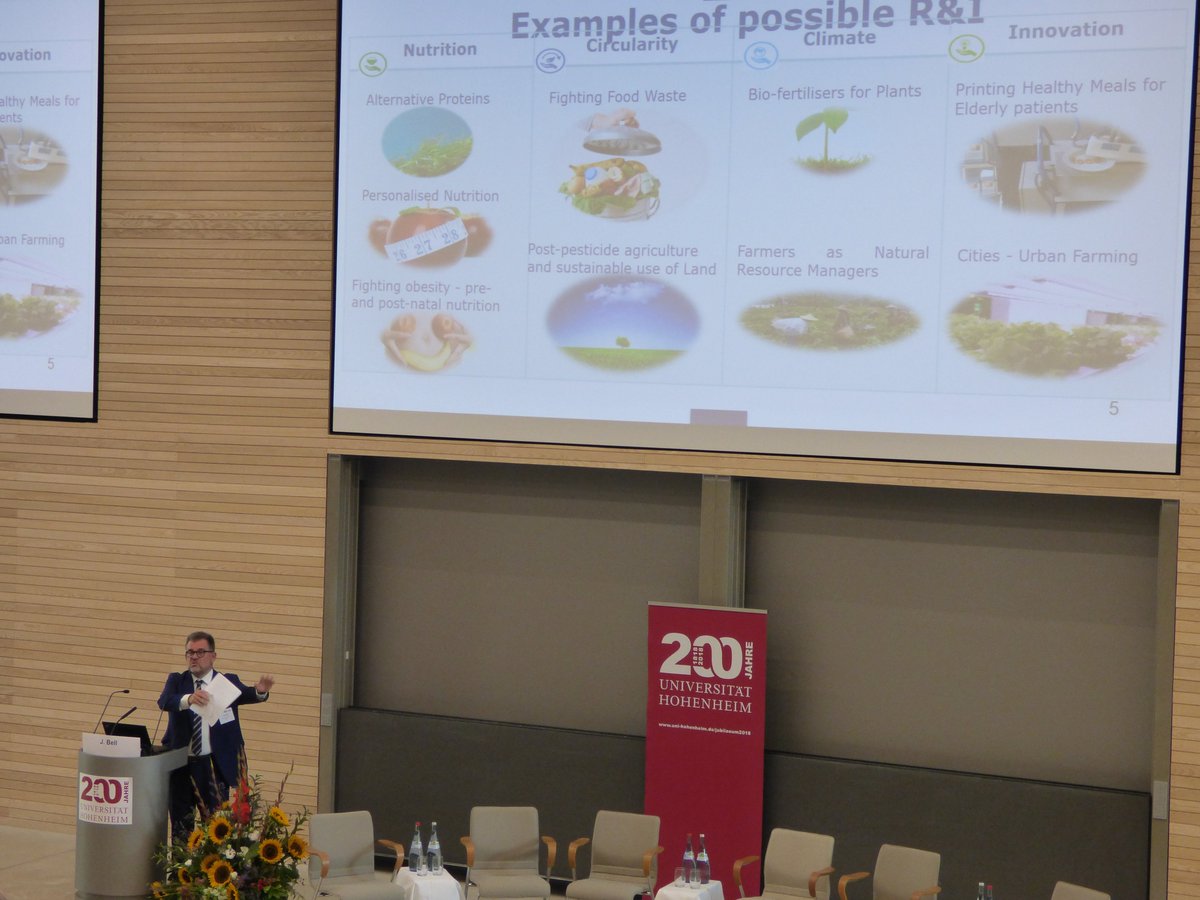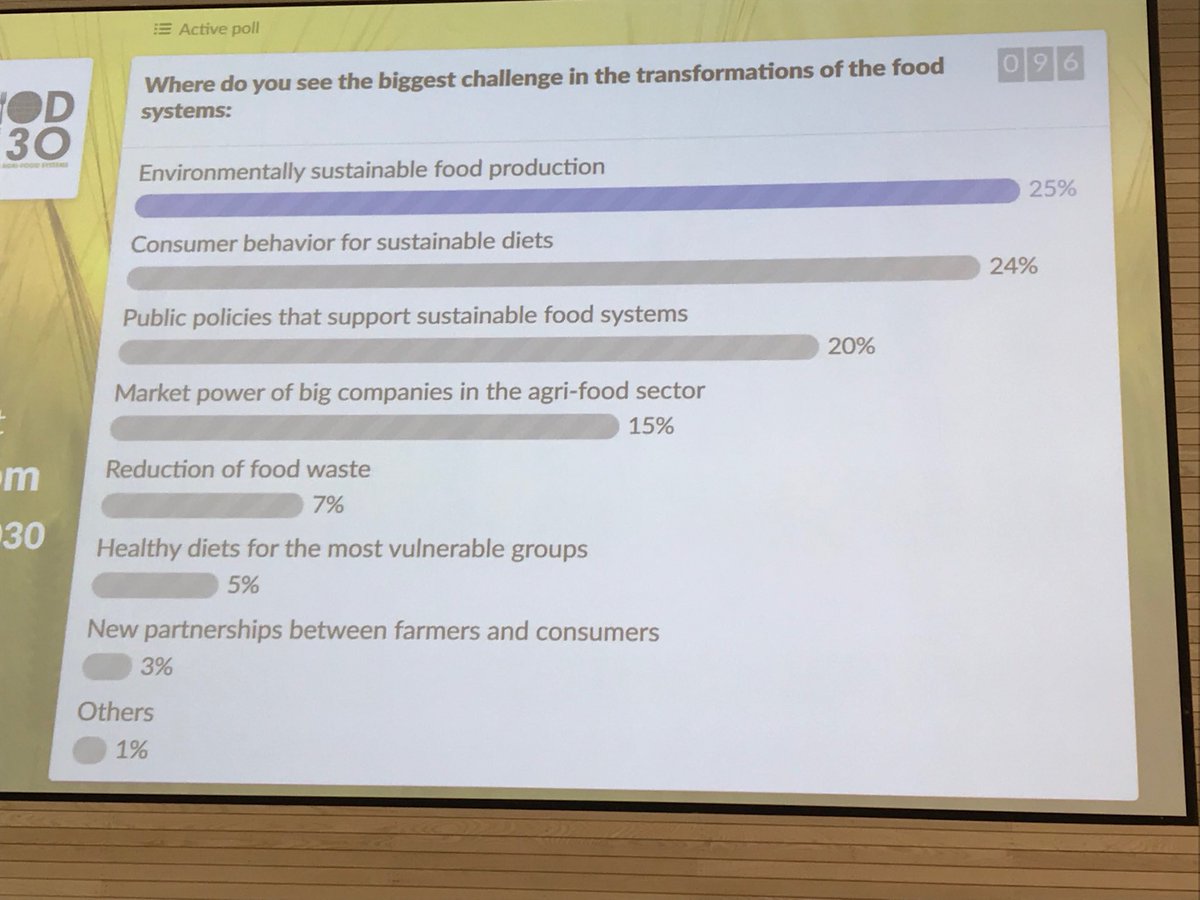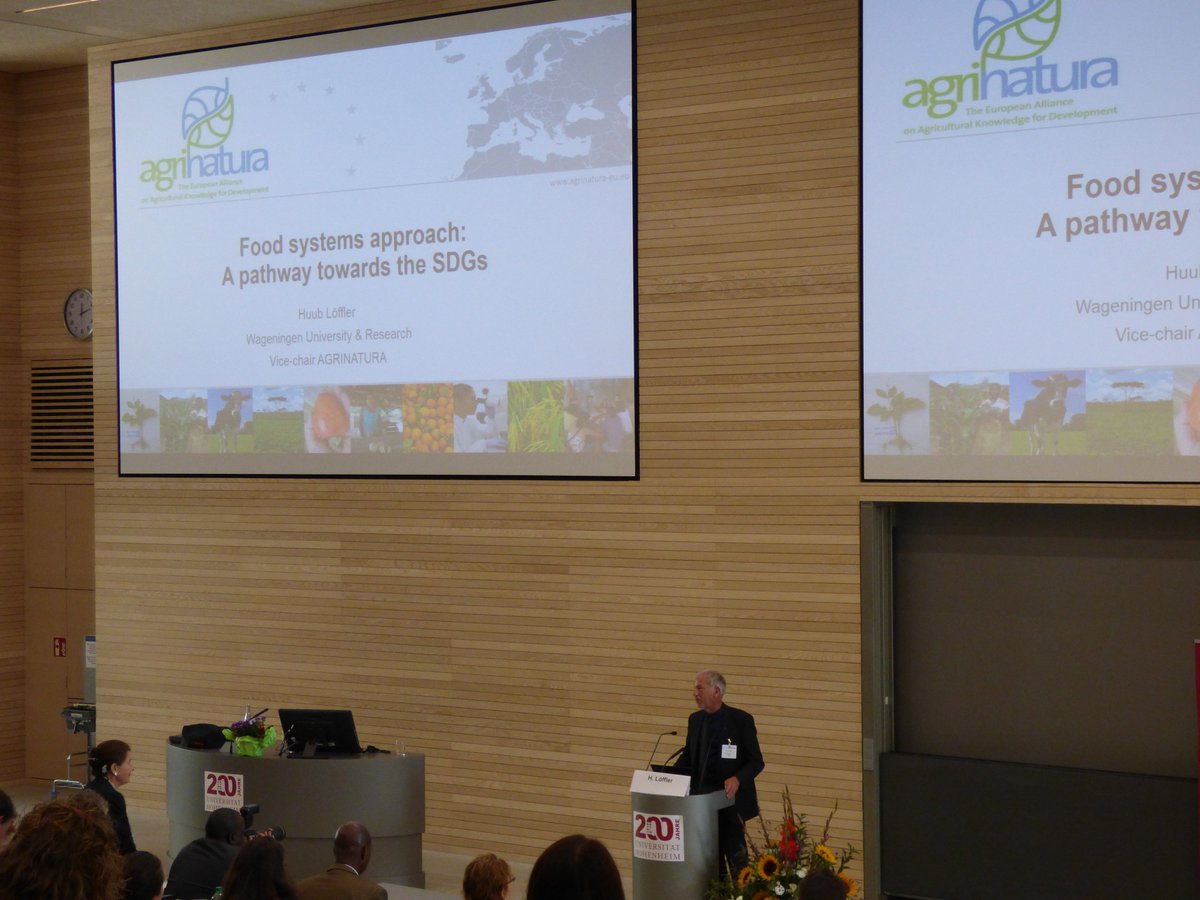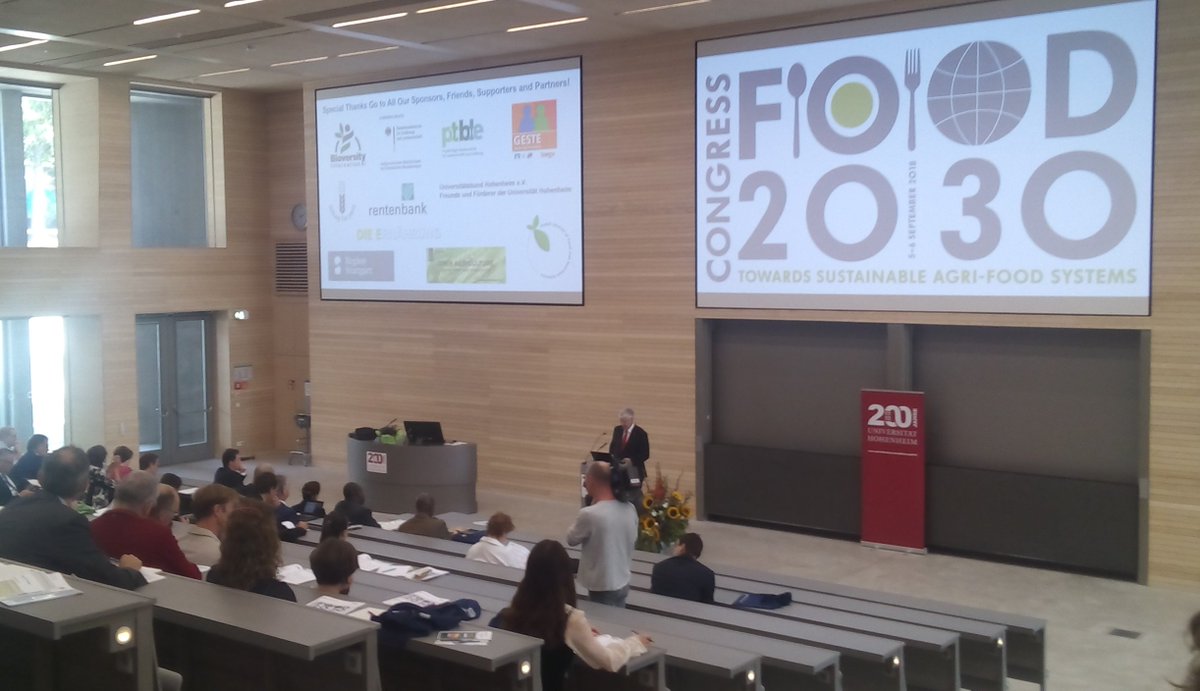 |
John Bell @bellser48 showed at the
how research and innovation can drive a
sustainable transformation of our food system.
|
The Congress was organized by various institutions at the University of Hohenheim:
- Research Center for Global Food Security and Ecosystems (GFE)
- Research Center for Health Sciences (FZG)
- Food Security Center (FSC)
- Hans-Ruthenberg-Institute for Agricultural Sciences in the Tropics
- Coordination Office Bioeconomy Research Program Baden-Württemberg
 |
| According to the participants of the Food2030 Congress: What‘s needed to move towards a sustainable food System? #CongressFood2030 |
Hohenheim, Stuttgart brought together experts, researchers and stakeholders from various disciplines with diverse experiences related to food systems.
- Program (PDF for download)]
- L I V E W E B S T R E A M
- Twitter: @GFE_Hohenheim #CongressFOOD2030
This international and interdisciplinary meeting fostered discussions on innovative pathways for future food systems that are healthy, food secure, resilient and sustainable. It networked researchers, policy makers, civil society and the private sector to facilitate exchanges and interactions in light of the upcoming 9th framework program for research of the EU. It focused on the following questions:
A. Health and nutrition
Nutrition is an important factor for a long and healthy life. The global obesity epidemic along with unequal access to food and health systems is among the most urgent challenges of today's societies. We need, for example, to better understand the biological determinants of individual nutrition, find out how to achieve behavioural changes in nutrition and develop suitable policies and communication guidelines for an increasingly diverse audience.
B. Resilience, adaptation and sustainable intensification of food production systems
Global food production systems are subject to transformations induced by changes such as climate, demography, economy, nutrition and consumption. Various strategies have to be developed to ensure food security for future generations. However, conflicts may arise from different sustainable development goals such as diversity conservation and mitigation of climate change. We need to consider these potential conflicts and improve our knowledge about increasing system’s resilience to crisis, sustainable intensification and the adaptation of food production systems to socioecological and economical challenges.
C. Bioeconomy and food production
Will increasing biomass use for the production of materials, chemicals and fuels be a risk for global food security? Or will the bioeconomy provide food security through new production schemes, social innovations and economic concepts? What are necessary regulatory changes? How can consumer´s opinions be considered?
- What are new insights from current research projects?
- What are new research questions and approaches to transforming agri-food systems?
- What expectations do representatives from civil society, public and private sectors have with regard to scientific research and sustainable agri-food systems?
A. Health and nutrition
Nutrition is an important factor for a long and healthy life. The global obesity epidemic along with unequal access to food and health systems is among the most urgent challenges of today's societies. We need, for example, to better understand the biological determinants of individual nutrition, find out how to achieve behavioural changes in nutrition and develop suitable policies and communication guidelines for an increasingly diverse audience.
 |
Huub Loeffler, director @WageningenINT,
mentioned transformative pathways with #SDG
TradeOffs and Synergies in a #foodsystem approach.
|
Global food production systems are subject to transformations induced by changes such as climate, demography, economy, nutrition and consumption. Various strategies have to be developed to ensure food security for future generations. However, conflicts may arise from different sustainable development goals such as diversity conservation and mitigation of climate change. We need to consider these potential conflicts and improve our knowledge about increasing system’s resilience to crisis, sustainable intensification and the adaptation of food production systems to socioecological and economical challenges.
C. Bioeconomy and food production
Will increasing biomass use for the production of materials, chemicals and fuels be a risk for global food security? Or will the bioeconomy provide food security through new production schemes, social innovations and economic concepts? What are necessary regulatory changes? How can consumer´s opinions be considered?
- Increased urban demand for indigenous vegetables – multiplier effects in the rural Kenyan economy Henning Krause, Leibniz University Hannover, Institute for Environmental Economics and World Trade, Germany
- Enhancing diet diversification of vulnerable communities after Ebola disease outbreak in Moyamba District, Sierra Leone Bader Mahaman Dioula, Action against Hunger, France
- Shaking hands with the devil: More meat, milk and eggs on the plates Silvia Alonso, International Livestock Research Institute, Kenya
- Contribution of milk from tropical cattle breeds to household food security and income in Mali Christoph Reiber, University of Hohenheim, Institute of Agricultural Sciences in the Tropics, Germany
- Rude awakening of a sleeping giant? Exploring costs and potentials of intensification options in African savannas Carsten Marohn, University of Hohenheim, Inst
- Out of food insecurity and poverty through land use intensification. A good practice example from Ethiopia Karin Gaesing, University Duisburg-Essen, Institute for Development and Peace, Germany
- Opportunities that agroforestry offers for increasing the resilience of food production systems Brigid Letty, Institute of Natural Resources, South Africa
- Social food-related well-being in a diaspora situation Lubana Al-sayed, University of Hohenheim, Institute of Social Sciences in Agriculture, Germany
- Citizen science meets informatics: Crowdsourcing participatory millet variety selection in Hoima, Uganda for climate change adaptation through Triadic Comparisons of Technologies (TRICOT) Methodology Gloria Otieno, Bioversity International, Policy Unit, Uganda
- Disseminating promising high-yielding tetraploid plantain bred-hybrids in francophone West Africa Rodomiro Octavio Ortiz Rios, Swedish University of Agricultural Sciences, Sweden
- The rise of medium-scale farms in Africa: Causes and consequences of changing farm size distributions Milu Muyanga, Michigan State University, Department of Agricultural, Food and Resource Economics, USA


No comments:
Post a Comment